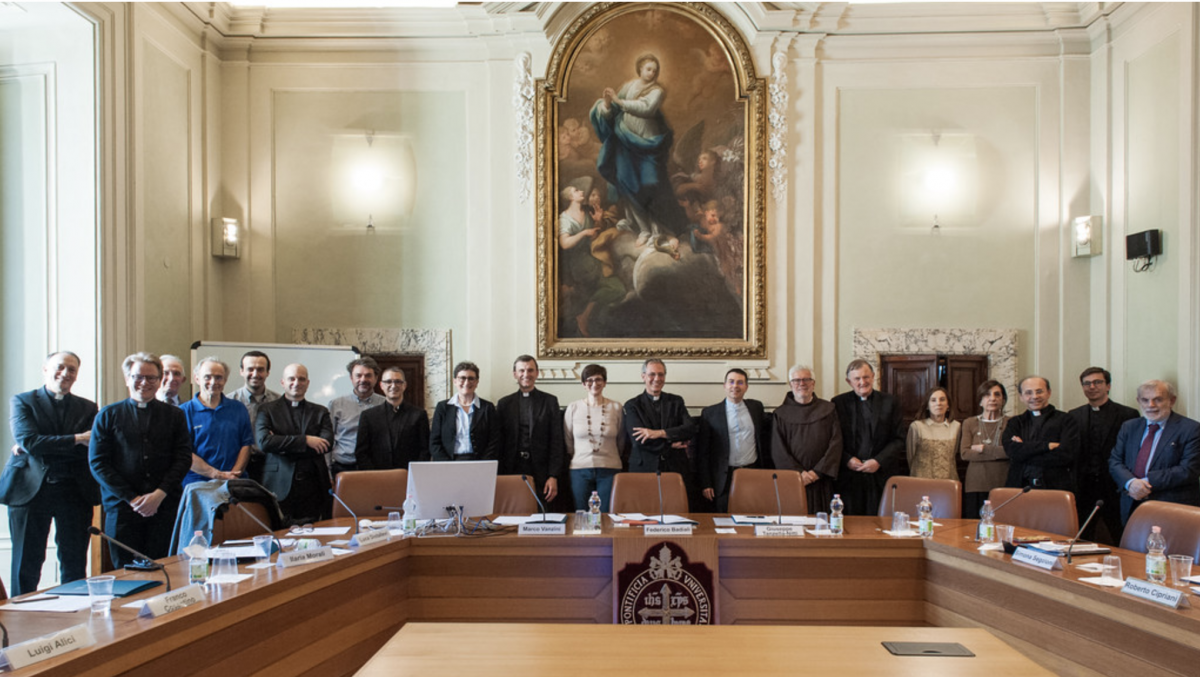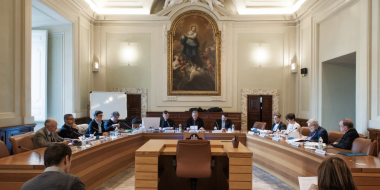Mission and Vision
The term evangelization is gradually replacing terms or expressions such as pastoral action, apostolate, care of souls. This is largely due to the socio-cultural circumstances of the Western world, especially Europe, witness of a growing secularization. This state of affairs has prompted both the Church's Magisterium and ecclesial action to speak more and more often of a new evangelization, or even of first proclamation of the Gospel, so indicating the need to preach the essence of the apostolic kerygma centered on the paschal mystery of Jesus Christ, now largely unknown.
However, with such a change of view in the ecclesial praxis is not yet associated an adequate theological reflection capable of accurately pointing out the characteristics of a theology of evangelization, its relations with catechesis and with a traditionally understood pastoral theology. There seems to exist a certain imbalance between the guidelines imparted by the Magisterium of the Church, oriented to encourage an outgoing Church called to evangelize, and the approach of current pastoral theology, whose programs and aims appear, at least in general, still aimed at the formation of pastors, whose main activity remains the administration of the sacraments and the so-called care of souls.
A new discipline?
The present Project intends to study the theological foundations of a Theology of Evangelization, making use of the contribution coming from the communication sciences, from philosophy and sociology of religion. These reflections are expected to shape and convey into a new institutional discipline, to be proposed and possibly gradually included in the theological curriculum of Ecclesiastical Faculties and Higher Institutes of Religious Sciences.
The aim of the research
- Offering tools to train pastors, ordained ministers and pastoral collaborators in general, helping them to carry out an announcement of Revelation and of the Christian faith that goes beyond the scope of the ordinary pastoral care carried out in the spaces of our parishes.
-
Providing tools so that pastors, ministers and catechists, in turn, can be helped to train the lay faithful to announce the Gospel, to be apostles in the family, in the workplace, in the exercise of their profession, in social life, in the various activities that form part of their ordinary life.
-
Helping the lay faithful who are trained in Higher Institutes of Religious Sciences or in Theological Faculties to rely upon on a body of reflections and teachings adequate to support their apostolate in a world that has changed. In fact, it is no longer enough to revive the faith which could be lukewarm or hidden under the embers, but it is now necessary to arouse the faith of those who have not yet known Jesus Christ.
- Let the entire people of God announce the Gospel, not only the ministerial Church, but also the non-ministerial Church, which operates by virtue of baptism and of the common priesthood to which baptism enables.





